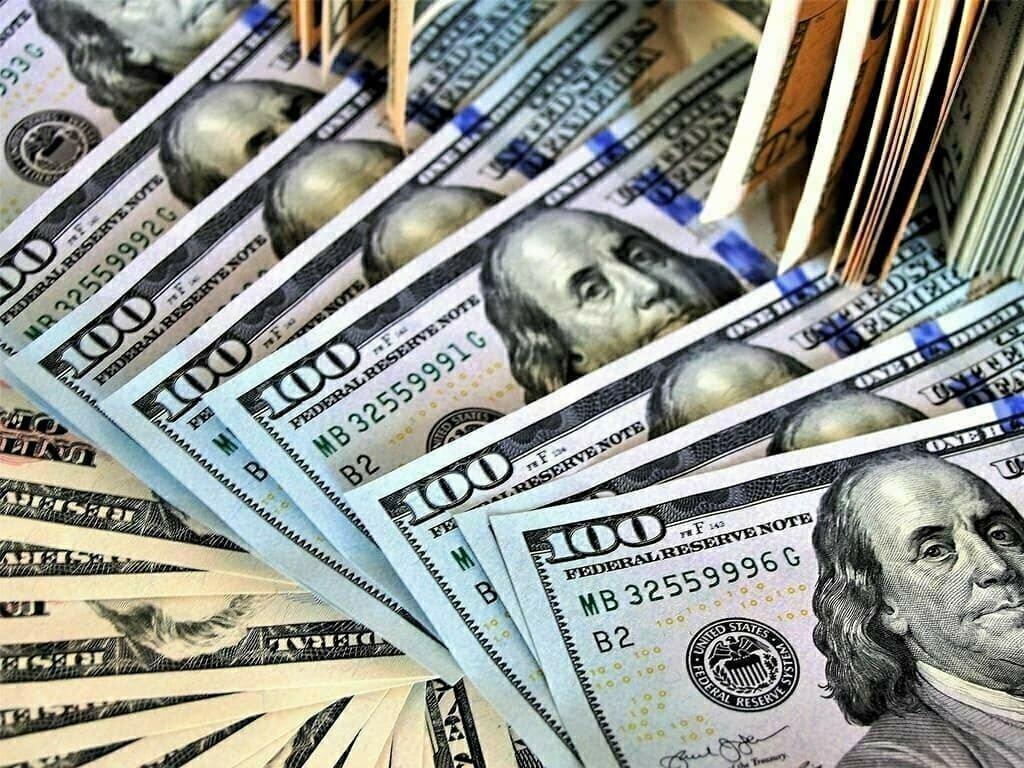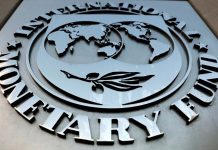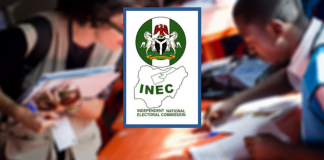🌿 Ruzu Non-Alcoholic Herbal Bitters
Ruzu Non-Alcoholic Herbal Bitters is a natural health supplement specially formulated to:
- ✅ Promote general wellness
- ✅ Detoxify the body
- ✅ Support the treatment of various ailments
Made from a powerful blend of 100% organic and medicinal herbs, Ruzu is completely alcohol-free, making it ideal for:
- 👪 All age groups
- 🌱 Health-conscious individuals
- 🌿 Anyone seeking non-alcoholic herbal remedies
Whether you're looking to boost your vitality, cleanse your system, or support healing the natural way, Ruzu Bitters offers a trusted herbal solution.
The duality of record-breaking local currency revenues and declining foreign earnings as a result of exchange rate depreciation increasingly characterizes Nigeria’s fiscal situation.
This contrast is highlighted in the newly released Q3 2024 budget implementation report, which was co-compiled by the Office of the Accountant-General and the Budget Office of the Federation. It also provides insight into the potential developments for Africa’s largest economy in 2025.
The first nine months of 2024 had a 78% increase in gross federally collected revenue, reaching N22.9 trillion, compared to N12.8 trillion during the same period in 2023, according to the study. This result nearly met the N23.1 trillion pro-rata budget target set by the government.
However, the situation is very different when expressed in monetary terms. Compared to $19.9 billion in 9M 2023, revenues decreased by 22% to just $15.5 billion. The naira’s sharp devaluation after the 2023 exchange rate reforms, which caused the official rate to drop from about N645/$ to N1,479/$ in 2024, is the obvious culprit.
Nigeria’s budgetary situation as it approaches the last quarter of 2024 and looks to 2025 shows both optimistic advancements and enduring concerns.
Oil earnings rebound, but the goal was not met.
Although they improved in 2024, oil revenues—which have historically been the foundation of Nigeria’s national finances—still did not meet projections.
The budget report states that oil collections increased by 102% year over year to N11.2 trillion, or 48.8% of overall revenues.
Nigeria pumped an average of barely 1.55 million barrels per day (mb/d) throughout the reporting period, below both its OPEC allotment and government expectations, despite rising oil prices and advancements in pipeline inspections.
Officials maintain that further upstream investments and increased security in the Niger Delta can achieve the 1.70 mb/d crude output projected in the fiscal framework for 2025. If the increased production level is realized, it could greatly increase oil revenues the next year, especially if Brent prices stay above $80 per barrel.
Analysts, however, are less hopeful.
“The recovery in oil collections is encouraging,” Cowry Asset Management CEO Johnson Chukwu stated. However, especially in 2025 and beyond, it is evident that Nigeria cannot rely solely on oil to maintain its budgetary stability. The prognosis is significantly impacted by underinvestment, aging infrastructure, and the global transition to cleaner energy.
Momentum is driven by non-oil revenues.
The Q3 2024 report’s non-oil receipts were the true highlight, even though oil revenue was lackluster. Non-oil revenues, at N11.7 trillion, not only surpassed oil’s contribution but also went 44% beyond budgetary projections.
VAT: Value-added tax revenues easily above the N3.0 trillion target, rising 96% year over year to N4.8 trillion. Stricter enforcement actions and increased digital VAT tracking were the main drivers of the increase.
Corporate Tax: Driven by robust corporate profits in manufacturing, finance, and telecommunications, company income tax receipts increased 29% to N4.3 trillion.
Customs Duties: Thanks to higher import values brought on by a declining value of the naira, collections increased by 82% to N2.2 trillion, which is roughly in line with forecasts.
Other Levies: Although they fell short of the N546 billion planned amount, electronic money transfer levies and other special taxes increased 44% to N401 billion.
The influence of continuous fiscal reforms, such as the expansion of the tax base, the digitization of collection systems, and enhanced compliance monitoring, is shown in these statistics.
It looks like the momentum will last until 2025. According to preliminary data, non-oil receipts increased 41% year over year to N20.6 trillion in the first eight months of 2025, highlighting a structural change that may eventually lessen Nigeria’s reliance on oil.
“At last, the tax system is catching up with the size of the economy,” noted public finance analyst Ngozi Okon. “Leaks have decreased, VAT compliance has significantly improved, and more businesses are being brought into compliance as a result of the digitalization push.” The fiscal framework of Nigeria has quietly succeeded thanks to these measures.
Increased income sharing between governments
Net distributable revenue to the three levels of government increased to N20.4 trillion in 9M 2024 after statutory deductions, more than doubling the N9.1 trillion distributed during the same period in 2023.
For state governments, many of which mostly depend on federal funding to support infrastructure, healthcare, and education, this windfall has given them much-needed financial flexibility. The increase in monthly allotments has made the difference between some states’ fiscal survival and demise.
In actuality, though, the effect is less pronounced. In 2024, headline inflation averaged over 27%, which reduced buying power. Simultaneously, the depreciation of the naira increased the price of imports, especially essential materials for public works and construction.
According to Muda Yusuf, head of the Centre for the Promotion of Private Enterprise, “States are receiving more money on paper, but they are also paying much more for everything.” “Service delivery is not improving at a rate that is commensurate with the revenue increase.”
The impact of foreign exchange depreciation on fiscal gains
The Q3 report makes it very evident that currency weakness limits Nigeria’s fiscal trajectory. Revenues in naira are rising, but their dollar equivalents are falling, which lowers the government’s purchasing power abroad and makes paying off external debt more difficult.
Foreign currencies, mostly US dollars, are used to pay down Nigeria’s external debt. The strain is emphasized by the drop from $19.9 billion in 9M 2023 to $15.5 billion in 9M 2024.
“We are collecting more naira than ever before, but when we convert to dollars, our position is weaker,” a top finance ministry official, who wished to remain unnamed, acknowledged the strain. Investor perception and the sustainability of debt are both impacted by this conundrum.
In order to increase market liquidity and draw in foreign investment, the Central Bank of Nigeria (CBN), led by Governor Olayemi Cardoso, is anticipated to carry out more FX reforms in 2025. Reserves have been gradually increasing due to portfolio inflows, but structural trade deficits and high import demand continue to put pressure on the naira.
Chukwu cautioned, “Nigeria’s fiscal revenue will remain undermined in dollar terms unless the naira stabilizes or appreciates.” “Growing naira collections is insufficient; external credibility is dependent on FX stability.”
Analysts assess the possibilities for 2025.
Most economists concur that three crucial elements will determine Nigeria’s fiscal performance trajectory in 2025:
Production of oil
“We will probably see oil revenues surpass 2024 levels in both naira and dollar terms if Nigeria can reach 1.7 mb/d in 2025,” Okon stated. “But there are still production risks, such as pipeline vandalism and underfunding of upstream facilities.”
Reforming non-oil taxes
The measures supporting growth outside of oil seem to be strong. It is anticipated that the VAT base would continue to grow as cashless transactions and digital payments become more prevalent. Additionally, it is anticipated that corporate tax collections would continue to be high, especially from telecoms and financial services.
Stability of FX
Possibly the most important factor. Restoring investor trust, reducing debt servicing obligations, and increasing the dollar value of revenues are all benefits of a more stable naira in 2025. However, the paradox of “more naira, fewer dollars” will continue to exist if currency decline continues.
Chukwu emphasized, “Higher naira revenues will continue to mask weaker real gains without FX stability.”
The inflationary double-edged sword
Inflation, which averaged more than 27% in 2024, is a connected issue. Since taxes on products, services, and imports increase in tandem with prices, high inflation increases nominal revenues. However, it also reduces household incomes, raises the cost of government, and erodes the true value of those revenues.
This implies that increased monthly allotments hardly meet the growing expenses of social spending, infrastructure improvements, and salaries for state and local governments. Yusuf declared, “It’s a treadmill effect.” “Costs increase more quickly as revenue increases.”
In the direction of financial stability?
The fiscal authorities of Nigeria are at a turning point in their history. Revenue mobilization is significantly improving, especially in the non-oil sector, on the one hand. Conversely, the depreciating value of the naira weakens the economy’s external strength, making it more susceptible to trade shocks and debt.
These factors will need to be carefully balanced in the government’s fiscal plan for 2025:
utilizing increased digitalization and compliance procedures to consolidate non-oil revenue increases.
addressing enduring constraints in the oil industry, including as underinvestment and crude theft.
coordinating with the CBN to restore external buffers and stabilize the naira.
Nigeria may move into a new stage of fiscal resilience, becoming less reliant on oil and more resilient to shocks from around the world, if these goals coincide. However, the paradox of “more naira, less dollar” will continue if oil underperforms and the naira stays weak, limiting the actual benefits of growing income.
In conclusion, 2025 is defined by a paradox.
Despite fragility, the Q3 2024 budget implementation report shows progress. States are sharing more resources, non-oil reforms are working, and nominal revenues are increasing quickly.
However, rather than strengthening Nigeria’s external position, the depreciation of the naira has made it weaker. Less money is made for every naira earned. As policymakers face the harsh fact that growing nominal revenues do not always equate to fiscal health, this paradox will influence the fiscal discussion in 2025.
“Nigeria is collecting more money than ever, but the world sees less value,” stated one expert based in Lagos. This dichotomy will characterize the fiscal narrative until the naira stabilizes.
















